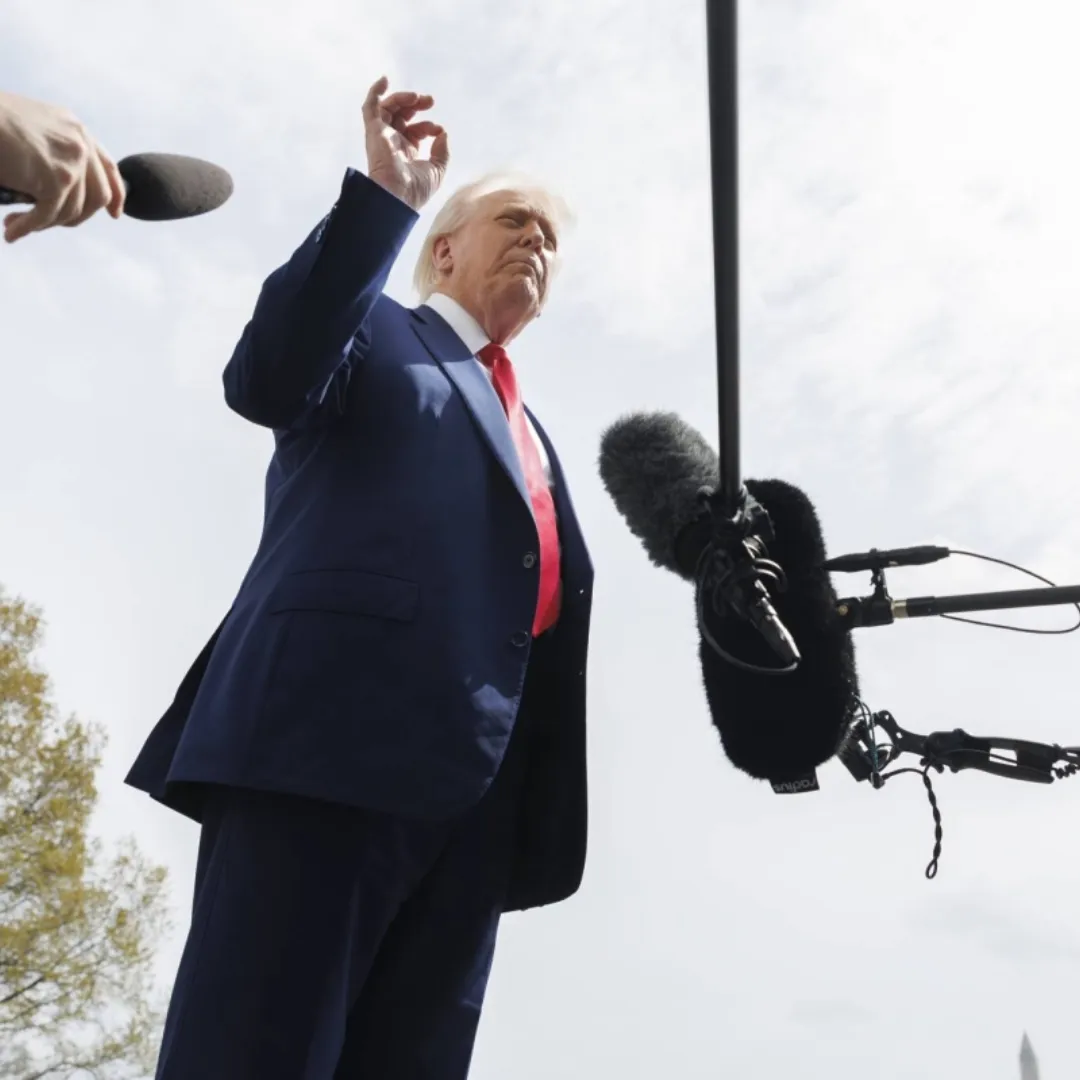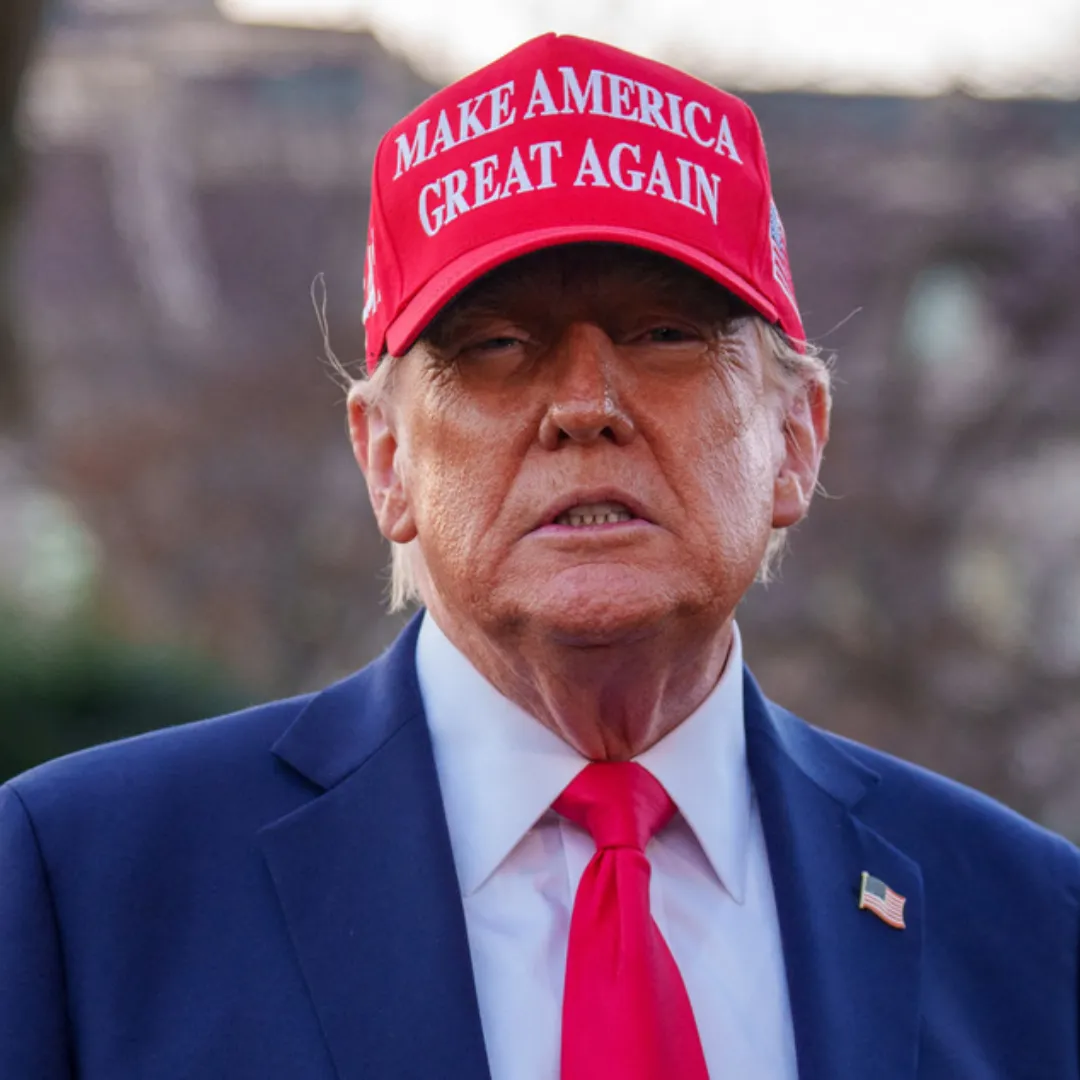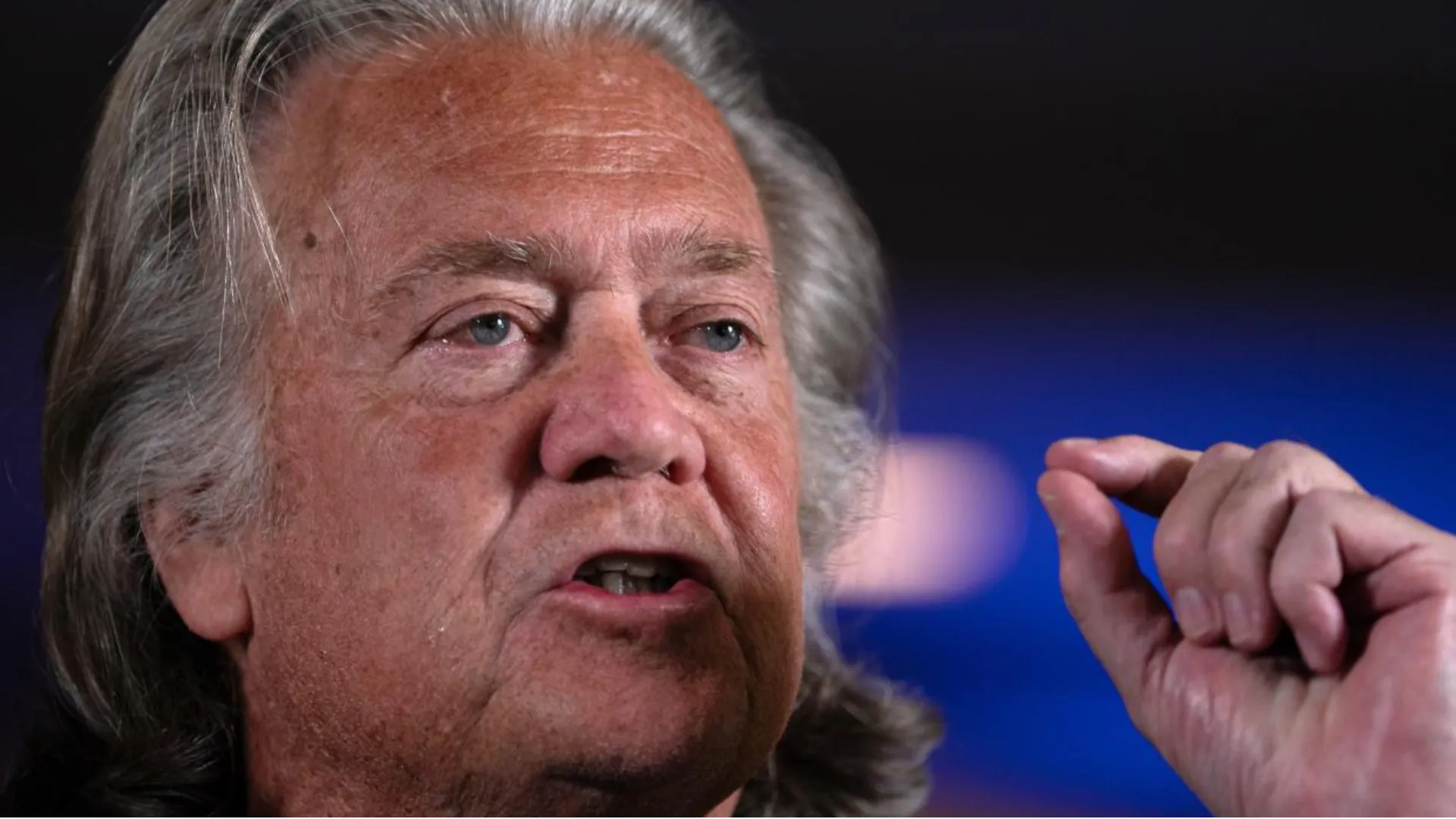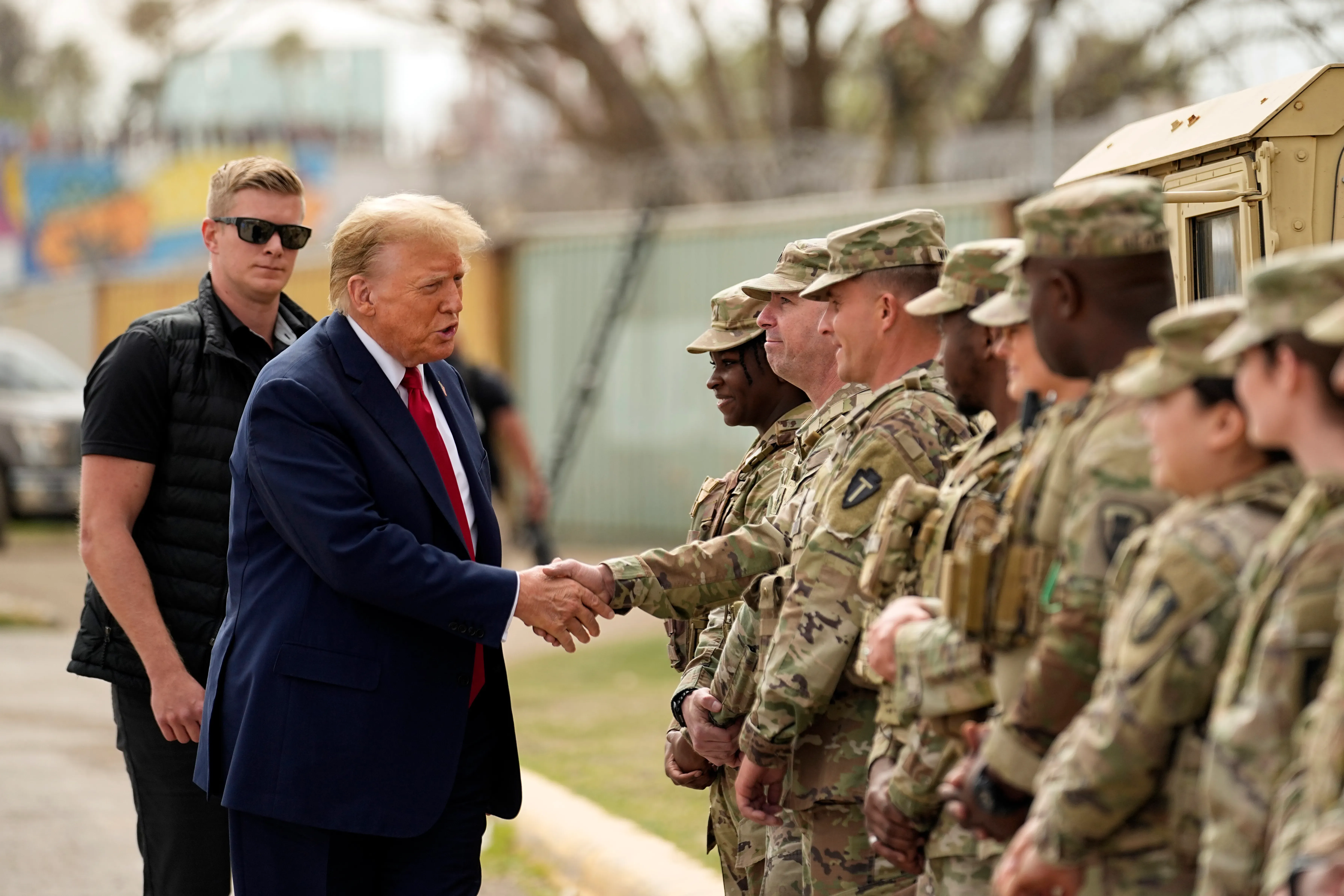In a recent interview, President Donald Trump addressed the growing speculation surrounding his potential bid for a third term in office, an idea that has gained attention despite being explicitly prohibited by the U.S. Constitution. Trump made it clear that while he is not actively planning to seek another term, he has been inundated with requests from supporters urging him to run again.
The comments, which came after a similar remark earlier in the day, stirred further controversy and raised questions about his future political ambitions.
When asked about his earlier statements where he said he was “not joking” about running for a third term, Trump acknowledged the interest from his supporters, although he quickly clarified that he was not actively considering the move.
"I’m not looking at that, but I’ll tell you, I have had more people ask me to have a third term, which in a way is a fourth term because the other election — the 2020 election — was totally rigged, so it’s actually sort of a fourth term,” Trump said, referencing his claims about the 2020 election being “stolen” from him.
These unsubstantiated claims have been a central theme in Trump’s post-presidency rhetoric, despite widespread rejection from both political opponents and many of his supporters.
Trump’s comments come at a time when his political future is being closely scrutinized, especially as rumors about a potential 2024 presidential run continue to swirl. He was asked directly whether his remarks meant he was “not planning to leave office on January 20,” a date marking the traditional end of a presidential term.
Trump’s response was vague, but he emphasized that he had received overwhelming support from people asking him to run again, and that this was the reason he believed so many were urging him to stay in office.
In the interview, Trump repeatedly touted what he described as the success of his administration, citing it as the reason people wanted him to remain in office.
He suggested that his administration’s accomplishments had garnered widespread praise from the public, and that’s why so many were asking him to seek a third term. “We have a long way to go before we even think about that, but I’ve had a lot of people,” Trump added.

When a reporter pointed out that the Constitution limits the president to two terms in office, Trump interrupted, saying, "I don’t even want to talk about it.” This response seemed to reflect his reluctance to fully engage in the conversation about the possibility of a third term, but it also signaled that he was not ready to rule out the idea entirely.
“I’m just telling you I have had more people saying, ‘please run again,’” Trump said. “We have a long way to go before we even think about that, but I’ve had a lot of people.” While he was not willing to commit to a third term at this time, his comments once again sparked speculation about his future plans.
The idea of a third term for Trump remains controversial, as it is explicitly prohibited by the 22nd Amendment to the U.S. Constitution, which limits presidents to two terms in office. However, despite this constitutional barrier, some of Trump’s supporters have pushed for changes to allow him to serve again.
Rep. Andy Ogles (R-Tenn.) proposed an amendment to the Constitution earlier this year that would allow Trump to seek a third term in the White House. Ogles argued that Trump “has proven himself to be the only figure in modern history capable of reversing our nation’s decay and restoring America to greatness,” and that he should be given more time to accomplish this goal.
This push to alter the Constitution to allow Trump to run again is seen by many as a reaction to the polarizing political environment and Trump’s enduring popularity among his base.
While the idea has gained some traction within certain conservative circles, it faces significant opposition from those who argue that the Constitution should not be altered to benefit one individual, no matter how popular or powerful they may be.
For now, Trump has been non-committal about his plans for 2028, repeatedly stating that he is focused on the present administration and not actively planning for a third term.
However, his repeated references to the idea of a third term, coupled with the support he has received from his base, suggest that he is keeping the possibility on the table, even as he continues to deal with the fallout from the 2020 election.

Despite the constitutional limitations, Trump’s comments about the possibility of a third term have sparked a national conversation about the future of American leadership. Trump has long been a polarizing figure, but his ability to galvanize his supporters remains undeniable.
The fact that he continues to receive calls from people urging him to run again speaks to the strong loyalty he commands within a large segment of the American population.
Trump’s brand of populist politics, which emphasizes nationalism, economic protectionism, and skepticism of the political establishment, has resonated with millions of Americans. His supporters view him as a champion of the working class, someone who is willing to challenge the political elite and fight for the interests of everyday people.
This fervent support has fueled the notion that Trump could potentially return to the White House, despite the barriers standing in his way.
While the notion of a third term may seem far-fetched given the constraints of the Constitution, it speaks to the enduring power of Trump’s influence in American politics.
Whether or not he is able to pursue another term in office, his role in shaping the Republican Party and the national political discourse remains significant. Trump has maintained a strong grip on the Republican base, and his endorsements continue to carry weight in key elections.
In addition to his political influence, Trump’s presence in the media and his ability to shape the national conversation through social media and public statements has made him a dominant figure in American politics. Whether he runs for office again or not, his voice will likely continue to shape the political landscape for years to come.
As Trump continues to toy with the idea of a third term, his legacy remains a topic of intense debate. Supporters view him as a transformative figure who reshaped American politics, while critics argue that his presidency was marked by divisiveness, corruption, and a disregard for democratic norms.
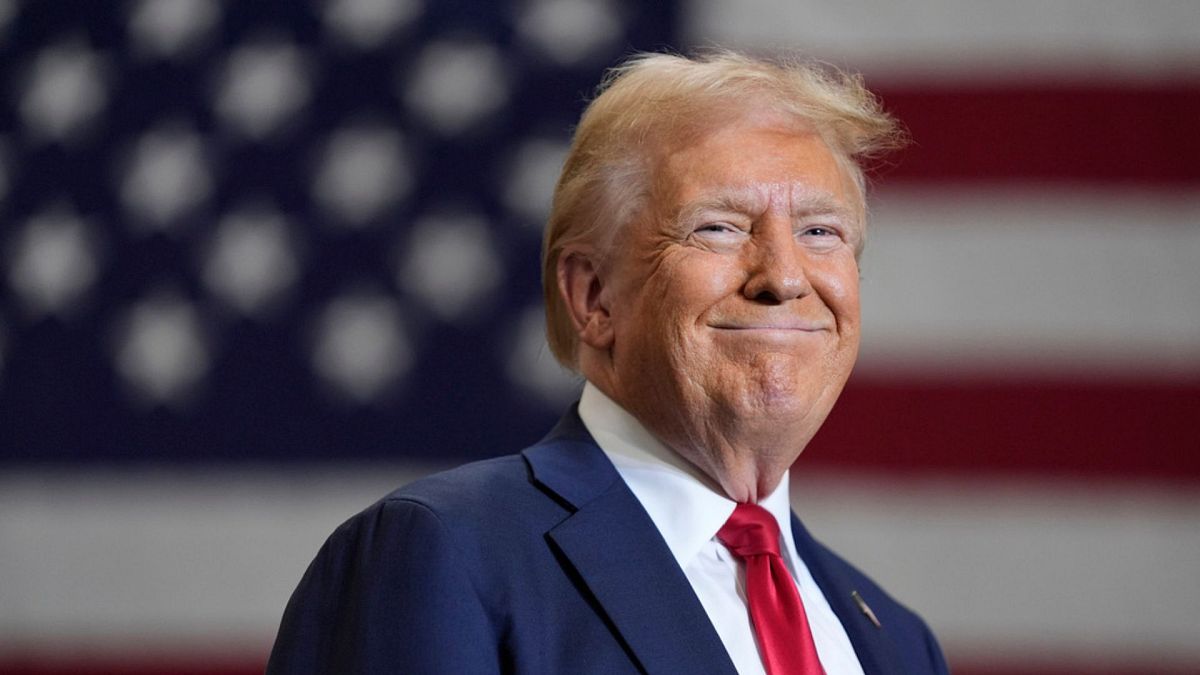
In the coming months and years, the debate over Trump’s place in American history will continue to evolve. Whether or not he pursues another term in office, the impact of his presidency will continue to reverberate throughout the country.
His supporters will likely continue to push for his return to the White House, while his detractors will continue to question the long-term consequences of his time in office.
As Trump faces ongoing questions about his political future, his comments about a third term offer a glimpse into his thinking. While he may not be actively pursuing a third term at the moment, his repeated references to the idea suggest that he is keeping the door open for the future.
Whether or not he will ultimately run again remains to be seen, but one thing is clear: Trump’s influence on American politics is far from over. His supporters are eager for his return, and his critics will continue to monitor his every move.
The question of whether America will see a third term for Trump is one that will be answered in the years ahead, but for now, it remains a topic of great speculation.

